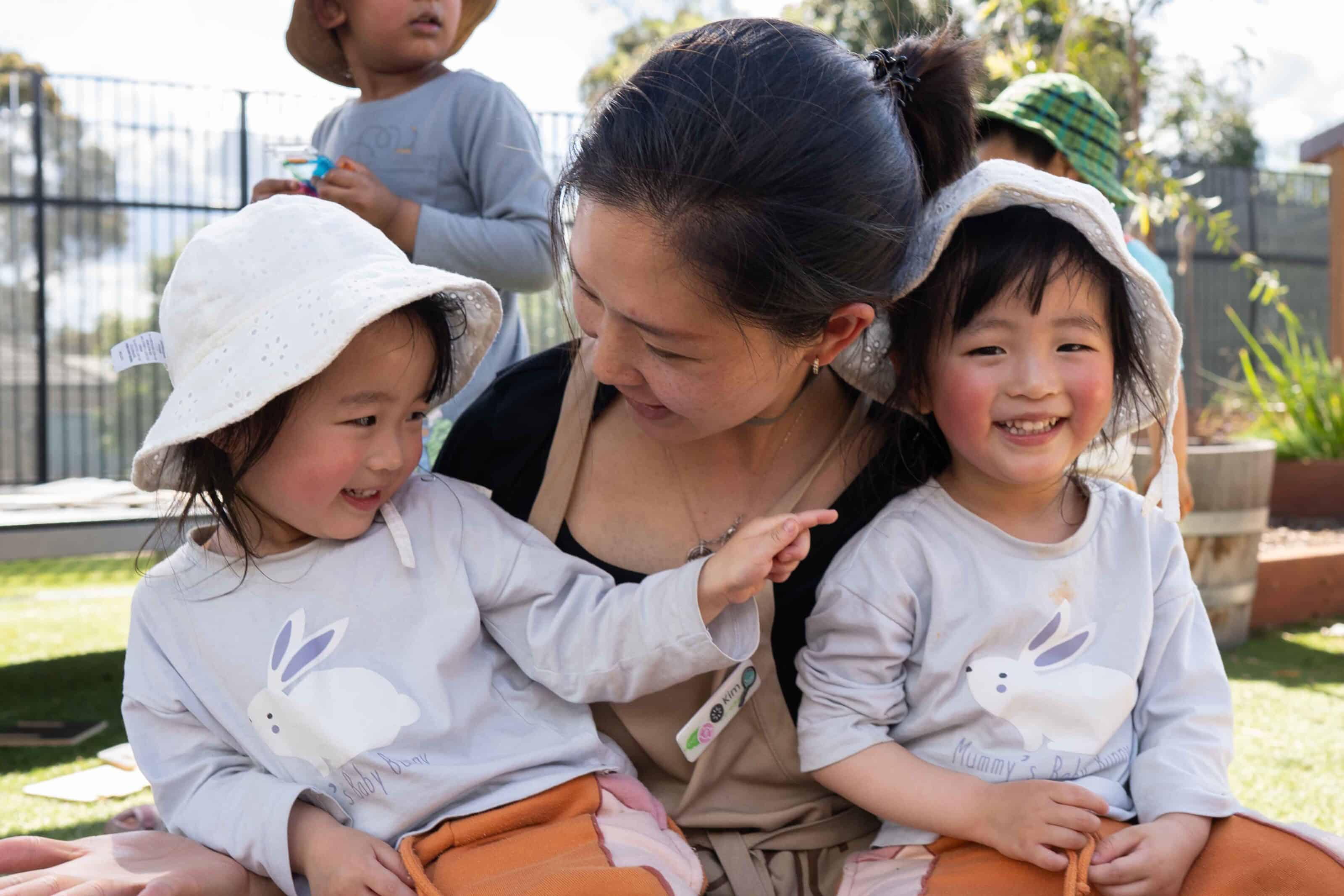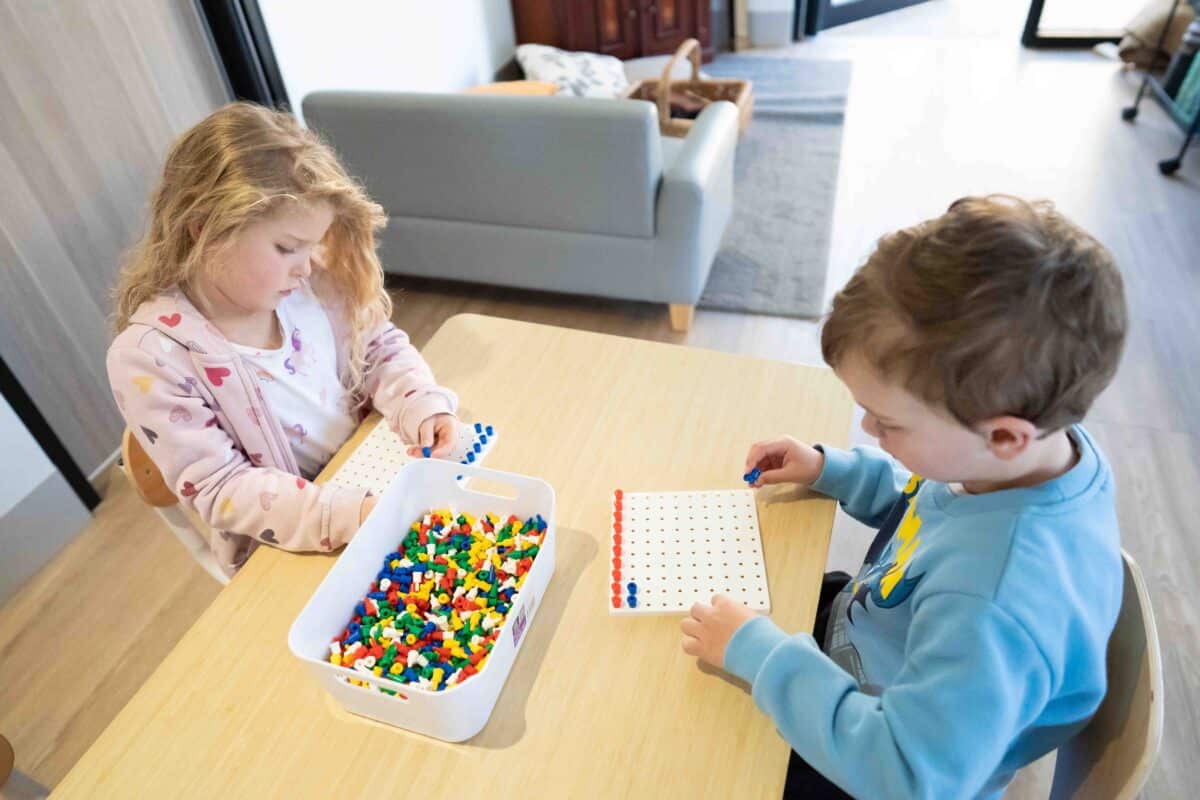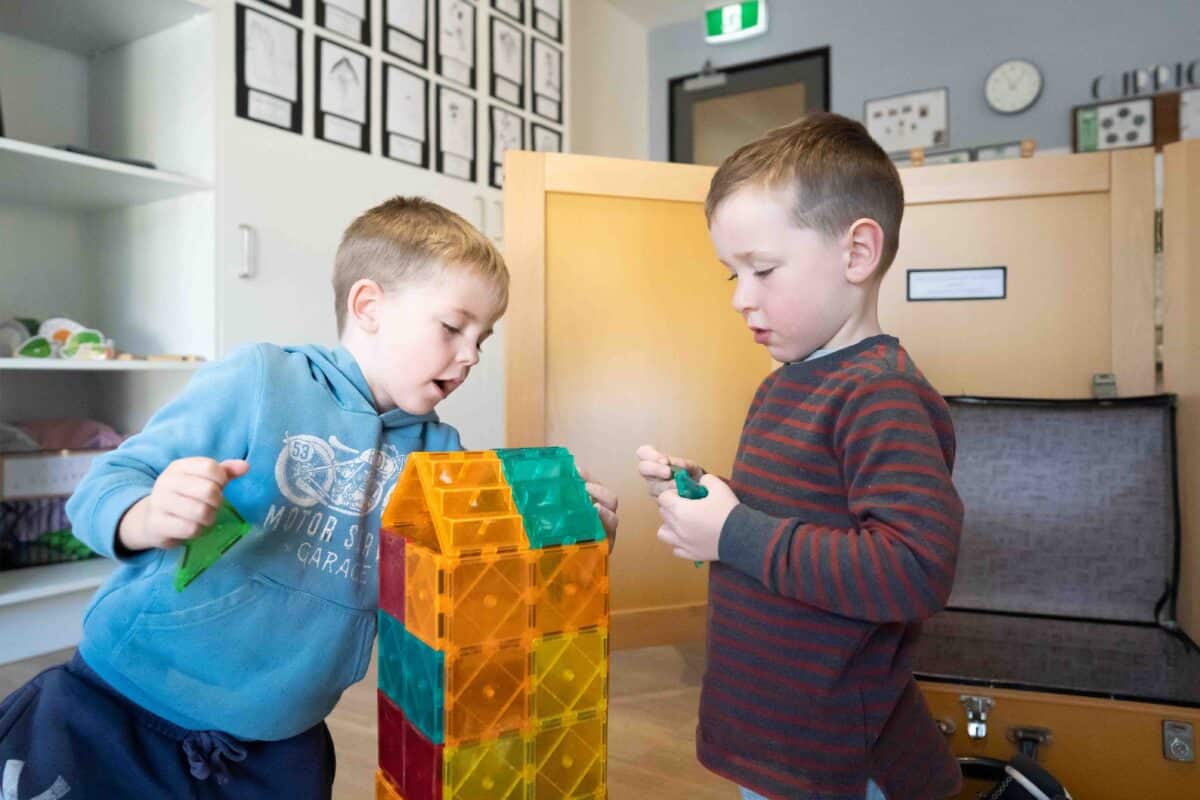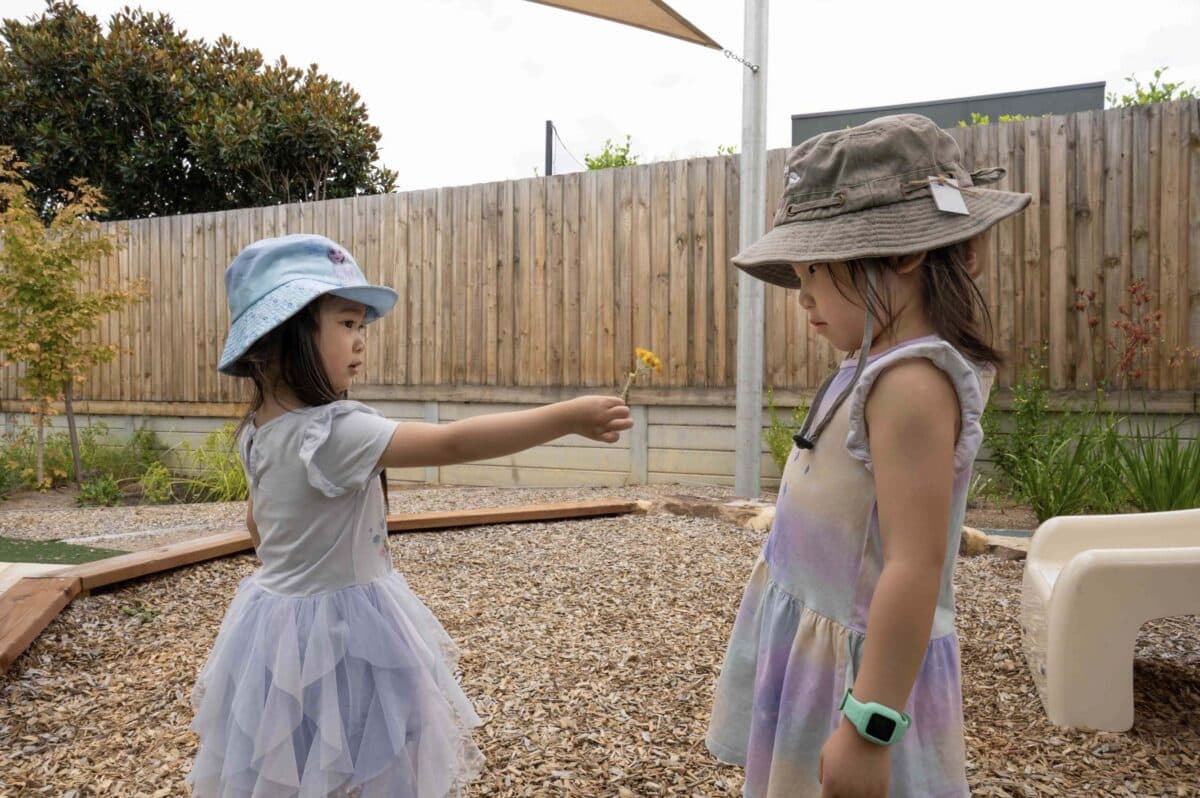How to Manage Sibling Rivalry: A Parent’s Guide to Peace
1 September 2023

Whether it’s the last slice of pizza or who gets the window seat, sibling rivalry can get out of control fast. So be sure to check out our handy tips to get a hold of sibling rivalries before they turn into lifelong competition 👇
One minute they’re playing and laughing together, the next they’re in a screaming match. Sibling rivalry is an inevitable part of raising multiple children. While it’s most prominent between children less than two years apart, it can happen in any sibling dynamic.
While common, sibling rivalry can be challenging for any parent. Therefore, understanding its roots and how to manage it can lead to a happier and more peaceful household.
In this post, we’ll explore the dynamics of sibling rivalry, its underlying causes, and practical strategies for parents and caregivers to foster healthy relationships among siblings.
Is Sibling Rivalry Normal?
Sibling rivalry is a natural part of growing up. Brothers and sisters are children’s first peers. However, unlike in social situations or school, siblings often infringe on children’s most sacred spaces. In other words, the home.
This forces children out of their comfort zone. They’re forced to share, cooperate, and co-exist with another in areas that were once entirely their own. This often takes the form of sharing toys, food, attention, and space!
Children, especially toddlers, are territorial and experience what experts call the ‘mine stage.’ Therefore, having to suddenly share the back seat, play spaces, or even their room is a huge dynamic shift for children. And keep in mind that a new baby or stepsibling is effectively a total stranger to a child.
However, it’s an invaluable lesson that forces children to accept an inescapable fact of life – change. You can’t always control your situation or circumstances, and sibling rivalry forces children to accept this reality and develop coping mechanisms.

What Causes Sibling Rivalry?
While it can be easy to look at sibling rivalry from an adult perspective, try and put yourself in your child’s shoes. For their whole life, your child has been the centre of the universe. They’ve had food all to themselves, toys, and more attention than they could ever need.
Then one day, that all changes. They’re now forced to share and have their source of attention halved overnight. This is a huge and understandably jarring shift for children of any age. In some ways, it can feel like their entire routine has been split down the middle.
And as children get older, these feelings may intensify and grow more complex as children develop differing interests. Understanding that each child has unique needs can help address this, as well as taking a deep dive into the core causes of sibling rivalry:
- Competition for Resources – siblings may consider limited resources like toys, space, or parental time as their own, leading to rivalries when these resources are challenged or divided.
- Identity and Individuality – as children develop their identities, they may compete to establish themselves within the family or for parental approval.
- Developmental Differences – siblings of different ages have distinct needs, leading to competition as they grow and mature where one child may excel in areas while another struggles.
Effective Strategies for Managing Sibling Rivalry
With the causes of sibling rivalry in mind, where do you go from here? While you can’t wave a magic wand to stop sibling rivalry from occurring, there are many ways you can manage it.
1. Encourage Individuality
This is perhaps the most important step to preventing childhood sibling rivalries from growing into lifelong competition. If you’re child loves sports, wonderful! Get out and kick the ball together or sign them up for a local team. If they’re artsy and love to draw, terrific! Get creative with them and encourage this passion.
Importantly, don’t compare or label them purely on these passions. Empower them to thrive in their own special way by celebrating their achievements.
2. Avoid Labels
Have you ever found yourself calling one of your children ‘the sporty one’ or ‘the smart one’? While this may seem harmless, labels inevitably draw comparisons and may lead to inadequacy in children. If one child is struggling academically, seeing their sibling praised as ‘the brainy one’ may hinder their motivation and limit their potential.
Therefore, try to be mindful of the labels you’re using. It’s a natural habit in modern society to feel the need to label and categorise the world around us. It gives a sense of security and comfort to know exactly how things and people fit in. However, people (especially children) are full of complexity and need to have their sense of individuality nurtured from an early age.

3. Stay in Control
No matter what you try, you’ll inevitably have to play referee between bickering siblings. However, children feed off your tone and body language. Therefore, joining the fight won’t exactly help to restore peace to the household.
Instead, try and remain as calm and neutral as possible – don’t play favourites! Over time, you’ll start to pick up cues for when a fight is starting to escalate into aggression and when you need to step in.
4. Set Clear Boundaries
Although sibling rivalries are often trivial and harmless, they can quickly cross the line into physicality. Be sure to be clear and assertive if siblings become aggressive, abusive, or violent with one another.
Set clear boundaries that respect and fairness are non-negotiables in the household and that physical violence is never the solution to an argument. Writing up house rules or having children sign a family contract can help to reinforce these values.
5. Be There to Listen
Emotional regulation is a vital lifelong skill for children. Likewise, fights between siblings often arise from perceived injustice. Therefore, sitting down with your child one-on-one after the conflict is a healthy outlet for children to express and articulate their feelings.
Children are far more likely to hear you out when they feel like they’re being heard and understood, rather than being told what to do. This will also aid in their emotional maturity and strengthen your bond with your child.

6. Quality Time with Each Child
Listening to your child isn’t always enough. Be sure to spend plenty of time one-on-one with your child engaging in their favourite activities, passions, or emerging interests.
While co-operation and spending time as a family is a must, it’s just as important to spend quality alone time with children. Talk with them, listen to their thoughts, and stimulate their budding curiosities.
7. Trust your Children
Despite all your best efforts, sometimes you have to let children work it out themselves. Of course, intervene if arguments become physically or verbally abusive. However, disagreements and discourse are a natural part of life and something your child will have to learn to navigate.
What may seem like a ‘fight’ may just be children using their problem-solving skills to resolve a conflict. This is an incredibly healthy sign for children as they learn to navigate social interactions and compromise. So be sure to congratulate children when they work issues out on their own – this is a huge developmental step!

Overall, sibling rivalry is a natural part of growing up, but with the right guidance and approach, it can be a valuable learning experience for children and parents. By understanding the causes, benefits, and effective strategies for managing sibling rivalry, parents and caregivers can create a nurturing environment where siblings build stronger bonds, empathy, and lifelong bonds.
Remember, fostering healthy sibling relationships takes time and patience. As children grow and change, so will the dynamics of their interactions. The key is to provide a supportive foundation that allows them to navigate rivalry while building a lasting connection, even if you will have to endure the arguments over toy dinosaurs and imaginary injustices.
🍃 To tour one of our beautiful Centres, please click here. Otherwise, check out our website to register your interest at Explorers Early Learning today!